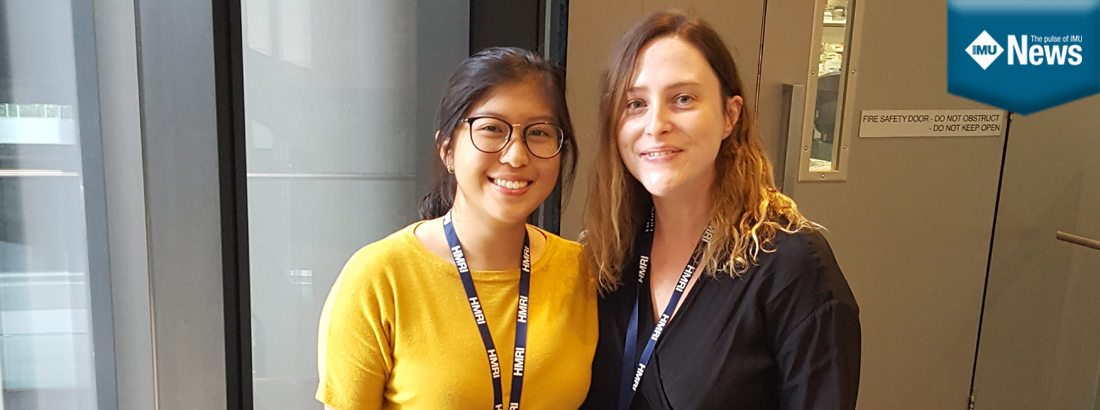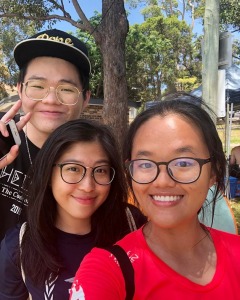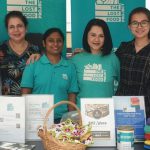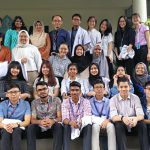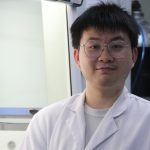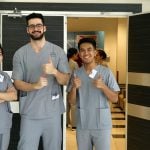IMU Biomedical Science student, Quek XIn Fei, was given the opportunity to undergo her Phase I internship at the Hunter Medical Research Institute (HMRI), Newcastle, Australia under the supervision of Dr Hock Tay. “Throughout my internship at HMRI, I was working on experiments related to respiratory viruses and asthma on mice models. I was given the chance to learn basic cell culture techniques, virus production, airway resistance and compliance (R&C) lung function test, bronchoalveolar lavage fluid (BALF) collection from lung samples, RNA extraction, quantitative polymerase chain reaction (qPCR), etc.” 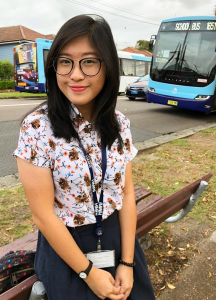 “Working under Dr Hock alongside his PhD students and research assistant has broadened my perspective on research, my knowledge as well as my passion to pursue research. It is not just the lab techniques that I have gained here. I have also learned management of a research lab and how to maintain the lab in good condition. It involves a lot of planning, time management and good communication skills.” “There are also some skills that I have learned that may seem insignificant but will be of good use to me in future experiments, such as how to label tubes, organise samples and data, tricks and skills while performing a lab technique, and more. It is interesting that everyone does things differently in their own unique ways and I could refer to how they organise their experiment/data/tools, modify and develop one that most suitable for me”. Xin Fei regarded her internship experience as incredible. “Seniors with past experiences at the same place have shared with me that going to Australia for the internship is quite relaxing because the working hours are flexible, and the workload are manageable. However, this was not the case for me. Workload was pretty overwhelming and hence, I have longer working hours, sometimes until night. There were stressful moments as I had a lot to work to do in a very limited time. I had to work every day, including weekends and public holidays. With careful planning and time management, things worked out eventually. At the end of the day, it always feels extremely fulfilling and productive for me, especially after putting so much effort into my work. This is the impetus that push me to work harder every single day.”
“Working under Dr Hock alongside his PhD students and research assistant has broadened my perspective on research, my knowledge as well as my passion to pursue research. It is not just the lab techniques that I have gained here. I have also learned management of a research lab and how to maintain the lab in good condition. It involves a lot of planning, time management and good communication skills.” “There are also some skills that I have learned that may seem insignificant but will be of good use to me in future experiments, such as how to label tubes, organise samples and data, tricks and skills while performing a lab technique, and more. It is interesting that everyone does things differently in their own unique ways and I could refer to how they organise their experiment/data/tools, modify and develop one that most suitable for me”. Xin Fei regarded her internship experience as incredible. “Seniors with past experiences at the same place have shared with me that going to Australia for the internship is quite relaxing because the working hours are flexible, and the workload are manageable. However, this was not the case for me. Workload was pretty overwhelming and hence, I have longer working hours, sometimes until night. There were stressful moments as I had a lot to work to do in a very limited time. I had to work every day, including weekends and public holidays. With careful planning and time management, things worked out eventually. At the end of the day, it always feels extremely fulfilling and productive for me, especially after putting so much effort into my work. This is the impetus that push me to work harder every single day.”
“An experience like this has showed me parts of the life of a research scientist. Long hours in lab, lack of sleep and time. Interestingly, it sounds reasonable that most people may not fancy that kind of work life. However, I realised that I enjoyed every single moment of it. The people in this lab has made my experience here even better. They were helpful and kind. Sometimes they will help me to ease some of my workload and I will do the same for them. It is not just the techniques that I have gained here. I have also learned how to work in a team, cooperate with everyone and communicate efficiently to get things done together”, added Xin Fei. “I am glad that the Biomedical Science course provided me with this opportunity to complete my attachment overseas, it was an extremely eye-opening experience. I have gained so much throughout my practical attachment that I cannot stress enough how important it is! It may be challenging for some to work off campus in a completely new environment, but the experience gained in return will definitely be worth it. Besides, the Biomedical Science course has prepared me well for this. Aside from the knowledge and lab skills that I have obtained from my course, the stress- and time-management skills that I also gained benefited me the most in this internship. It is something you develop over time, managing plenty of coursework and projects. This is why I still get to enjoy my time there despite the heavy workload. It reminds me of a quote I know by heart; “It’s not the load that breaks you down, it’s the way you carry it.”. 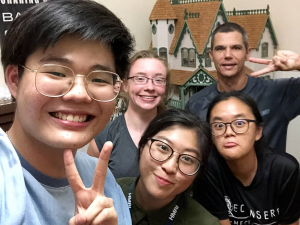
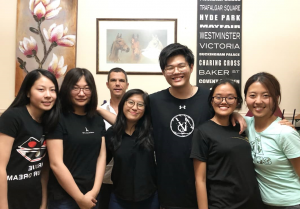 “Besides gaining valuable experience in HMRI in Australia, I was also very fortunate to have met fantastic colleagues and housemates. I deeply cherish my time spent with them as we have so many wonderful memories together. Going to Australia has been one of the best decisions I have ever made, and I cannot wait to go back there again!”
“Besides gaining valuable experience in HMRI in Australia, I was also very fortunate to have met fantastic colleagues and housemates. I deeply cherish my time spent with them as we have so many wonderful memories together. Going to Australia has been one of the best decisions I have ever made, and I cannot wait to go back there again!”
| About Hunter Medical Research Institute (HMRI) |
|---|
| Located in Newcastle, New South Wales, Australia, HMRI is a medical research institute that enables the translation of world-class medical research into clinical practice, to prevent, cure and treat life threatening illnesses and diseases. In partnership with the University of Newcastle and Hunter New England Local Health District, HMRI consists of six key translational research programme which includes Brain and Mental Health, Cancer, Cardiovascular, Pregnancy and Reproduction, Public Health and lastly, VIVA (Viruses, Infections/Immunity, Vaccines & Asthma) |
Written by: Quek Xin Fei Photo credits: Quek Xin Fei




